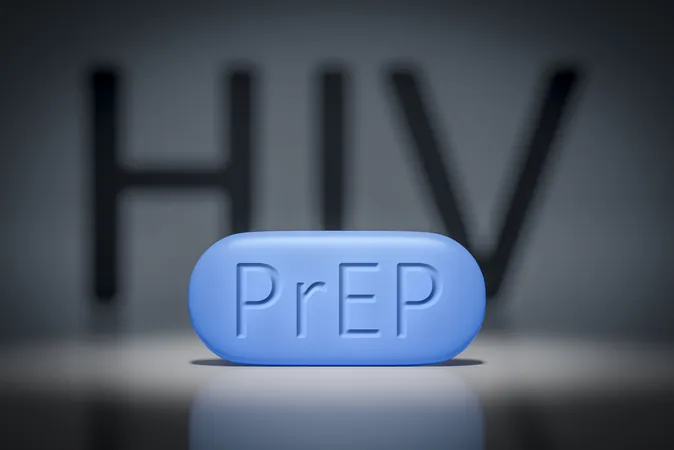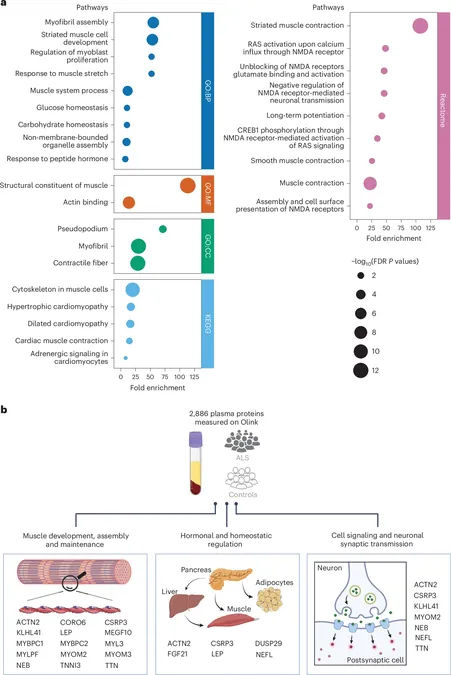
WHO's Game-Changing HIV Guidelines: A Major Leap Towards Prevention and Care Access
2025-07-22
Author: Yu
Transforming the Global Fight Against HIV
The World Health Organization (WHO) has just unveiled groundbreaking new guidelines aimed at revolutionizing the prevention and management of human immunodeficiency virus (HIV), a critical step that could reshape the global response to this persistent health crisis. With an alarming 44.1 million lives lost and approximately 40.8 million individuals currently living with HIV, the urgency for effective intervention has never been more pressing.
A New Era of HIV Treatment Alternatives
While there is currently no cure for HIV, advancements in treatment have led to highly effective options that can inhibit the virus from multiplying. Among these exciting developments are long-acting injectable medications that dramatically simplify treatment regimens, requiring administration just twice a year. Effective as pre-exposure prophylaxis (PrEP), these injectables are set to become a game-changer in HIV prevention, particularly for those struggling with daily medication adherence.
Breaking Down Barriers to Prevention
The new WHO guidelines are designed to make HIV testing and prevention more accessible than ever before. By enabling community-based distribution through pharmacies, clinics, and telehealth options, WHO seeks to eliminate obstacles that traditionally hinder access to PrEP. This initiative will empower marginalized groups, those without reliable healthcare access, and individuals facing stigma to protect themselves against HIV—opening the doors to a safer future for many.
Forecasts Signaling Hope
Analysts estimate a promising decline in new HIV infections, projecting a drop from nearly 59,000 cases in 2023 to around 56,000 by 2033 in major markets such as the US, UK, and across Europe. This optimistic forecast hinges largely on the expanded availability of PrEP, especially for at-risk populations, meaning potential future reductions in both new and existing HIV cases. This could lead to a significant decrease in community transmission, benefiting even those not on PrEP.
Funding Challenges Loom Ahead
However, the rollout of these innovative PrEP options faces potential roadblocks amid uncertain global health funding. While the technology exists to lessen new HIV cases—ultimately reducing the number of individuals reliant on continuous treatment—the political will and financial backing necessary for widespread implementation may be lacking. For these preventative measures to be successful, robust funding in communities hardest hit by HIV/AIDS is crucial.
The Ripple Effect of Prevention
Successfully reducing the number of new HIV infections could yield significant benefits beyond individual health. Fewer cases would translate into enhanced community wellbeing, greater economic productivity, reduced instability, and an overall movement toward upholding human rights globally. The WHO's new recommendations promise a proactive approach that could redefine the future in the fight against HIV and its far-reaching consequences.





 Brasil (PT)
Brasil (PT)
 Canada (EN)
Canada (EN)
 Chile (ES)
Chile (ES)
 Česko (CS)
Česko (CS)
 대한민국 (KO)
대한민국 (KO)
 España (ES)
España (ES)
 France (FR)
France (FR)
 Hong Kong (EN)
Hong Kong (EN)
 Italia (IT)
Italia (IT)
 日本 (JA)
日本 (JA)
 Magyarország (HU)
Magyarország (HU)
 Norge (NO)
Norge (NO)
 Polska (PL)
Polska (PL)
 Schweiz (DE)
Schweiz (DE)
 Singapore (EN)
Singapore (EN)
 Sverige (SV)
Sverige (SV)
 Suomi (FI)
Suomi (FI)
 Türkiye (TR)
Türkiye (TR)
 الإمارات العربية المتحدة (AR)
الإمارات العربية المتحدة (AR)